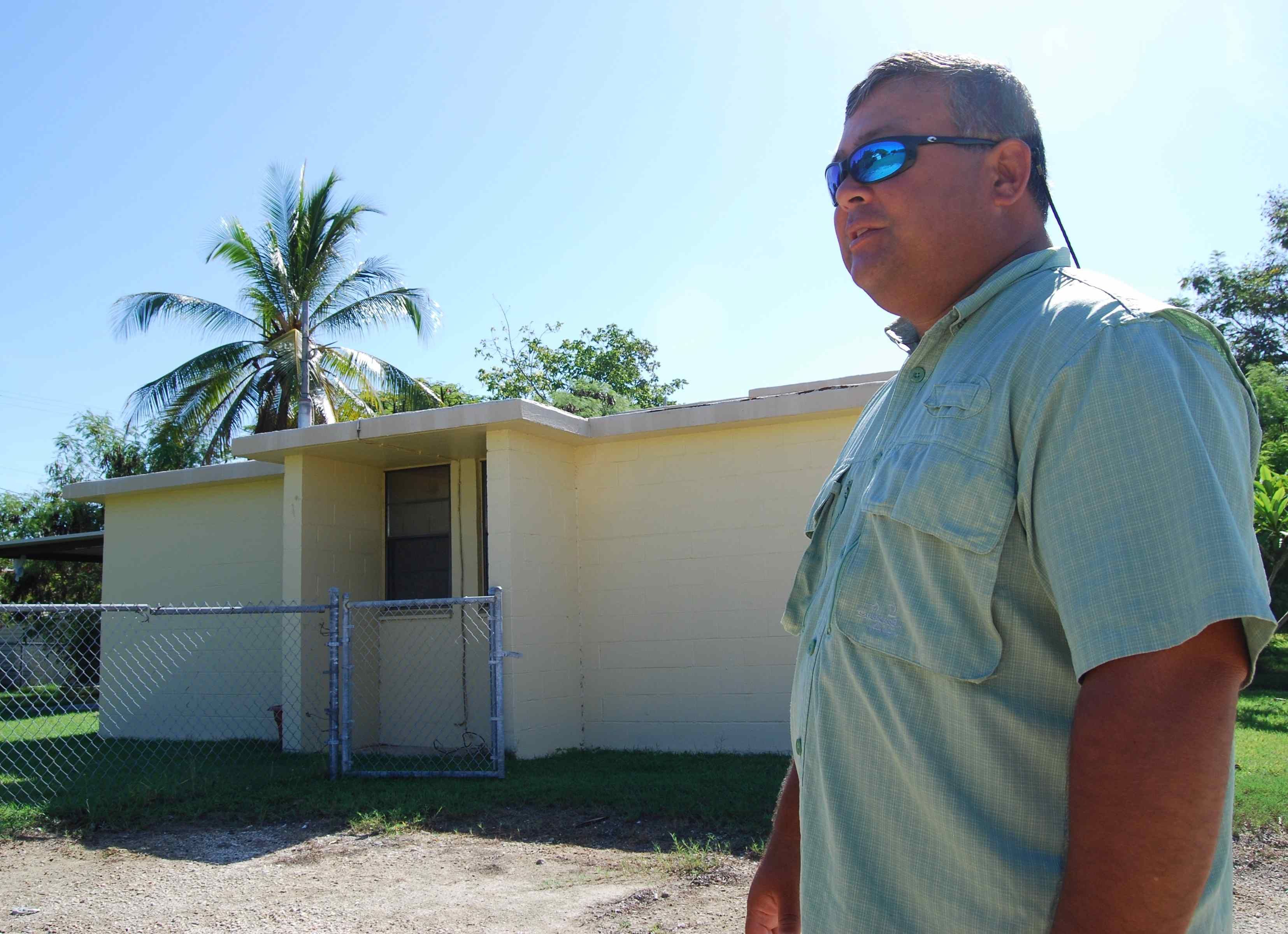For base environmental director Mike McCord, growing up at U.S. Naval Station Guantánamo Bay in the 1970s and early 1980s was like paradise. His family moved to Gitmo when he was five years old, and McCord spent the next 11 years on the base, swimming nearly every day. "Gitmo has pretty much molded me," McCord says. As a child, his biology classes consisted of going to the beaches to collect fish, observe starfish in the tidal pools, snorkel in the shallow swimming areas, and search for and study iguanas and native plants. In fourth grade, his teacher was an avid shell collector, and McCord learned the scientific names for many of the shells he saw on the beaches.
At that time, the mission of the base was still closely linked to the tensions of the Cold War, and many employees and their families stayed at Gitmo for long periods of time, rather than the five years employees are limited to now. Like many base kids, McCord spent as much time on the water as he could—the genesis of his adult obsessions with fishing and scuba diving, both of which he does frequently now that he is back.
For many years after leaving at age 16, McCord doubted he would be able to return to Gitmo. When his family moved to Kansas, he was shocked by the snowy winters and his classmates. "When they'd been to the ocean, they'd been to Florida or Texas," he says. "Had they ever been out on a coral reef, where you can see out 100 miles?" After high school, McCord went on to study biology and fisheries in college, was deployed to Saudi Arabia and Iraq during the Gulf War with the Army Reserves, got jobs in Kansas helping to convince farmers to keep their waste water systems away from aquifers, and began working in environmental services for the Army in Louisiana.
By the late 1990s, McCord had started looking online for jobs that would get him back to Gitmo. Not only was the base the only place he thought of as home, but McCord felt that he owed something to the base, and wanted to bring an awareness of the environment to residents of the base, as he'd learned about the natural world there himself as a boy.
When he finally got back to Gitmo after nearly a decade of trying, McCord found that little had changed on the base environmentally, with the human population significantly smaller than when he lived there and minimal intervention in the terrestrial and marine landscapes. Now that he is the environmental director, McCord is working to increase the scientific research Gitmo, inviting experts from across the United States to study coral, fossils, reptiles, birds and the base flora. Understanding the wildlife on the base, he believes, will help him better manage and protect the base's environmental resources.
